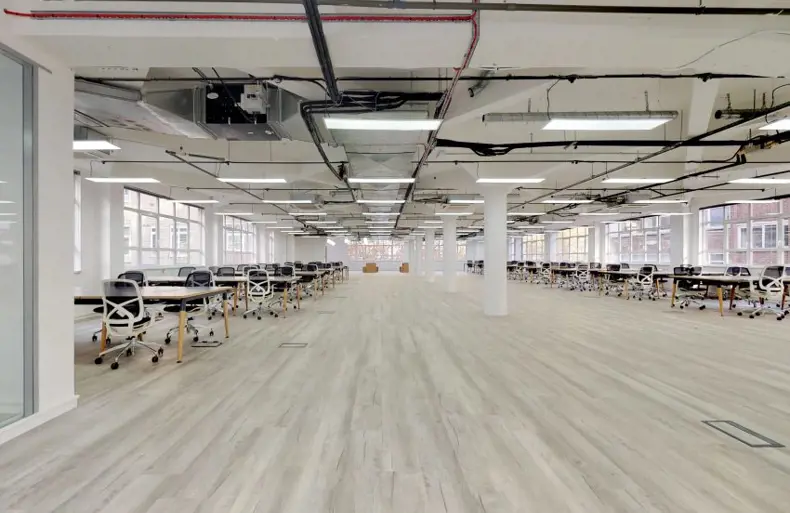Since 24th March office space became, virtually overnight, of little use to anyone. Eight weeks forward and London has started to move towards the next phase of the response to the pandemic. Occupiers are now getting to grips with how to re-engage with their offices in order to provide a space that enables staff to feel comfortable about being back in the workplace, whilst at the same time continuing to ensure a productive and collaborative environment. Such ideas in the short term may include the implementation of increased hygiene standards, two- metre distancing layouts, perspex screens, alternate working patterns and increased/improved cycle and shower facilities.
We will see businesses across all sectors adopting a hybrid method of office occupation, where the benefits of working in an office are combined with the ability to work flexibly and safely
There have been numerous commentaries and quotes since the start of lockdown predicting that the death of office is nigh. The enforced global Working From Home exercise has shown a large number of organisations that people can work effectively and productively on a remote basis and as such, forecasts have been put forward that demand for new office space would crash through the floor.
We do not expect this to be the case, although one thing that most can agree on is that office space will not be utilised in exactly the same way as it has been previously. Best practice guidelines are hastily being put together in response to this evolving threat to our industry and the economy as a whole. The hope and prediction is that we will see businesses across all sectors adopting a hybrid method of office occupation, where the benefits of working in an office are combined with the ability to work flexibly and most importantly safely.
Inevitably as a result of this change in requirement from the office space end user, many aspects of a building’s life cycle will need to be considered:
Developers
Developers will have to review their previous assumptions on build periods and costs as they look to replace the trend of maximising occupancy ratios with practical building design and M&E systems.
Landlords
Landlords will have to update and refine property management procedures. They will need a more rigorous hygiene regime; automatic doors and perhaps a lower percentage of communally shared areas. We will see more building technology monitoring and enhancing the health of the building itself and consequently the people in it. Crucially, we may well see a number of buildings that become unsafe or unlettable without investment, similar to the MEES regulations of any building recording an EPC rating of E is unlettable.
Is this the end of the hot desk?
Occupiers
Occupiers will have to evaluate their working culture and how their staff now wish to work as dedicated desks at work and the ability to work from home part of the week is likely to be more prevalent. Could this be the end of the hot desk?
Companies will most likely still use their office space to reflect their brand and to attract and secure the best people in the so called “Battle for talent” but what the ‘the talent’ will now require will evolve in a post pandemic world. It is clear that the last couple of months has made people realise that they have the ability and technology available to work from home effectively when they want or need to, but ultimately an organisation’s culture, development of their workforce and business identity can still be successfully achieved around a high quality shared workspace.
There may well be a trend of large occupiers taking more office space, be it traditional or serviced, in satellite towns to provide another option for their employees as well as resilience against further localised outbreaks of the virus.
The evolving demands of different types of office occupier will be a challenge that landlords, developers and their advisors will be keen to meet head on to ensure that the office continues to be as relevant to an organisations’ success as we move back into the workplace.




